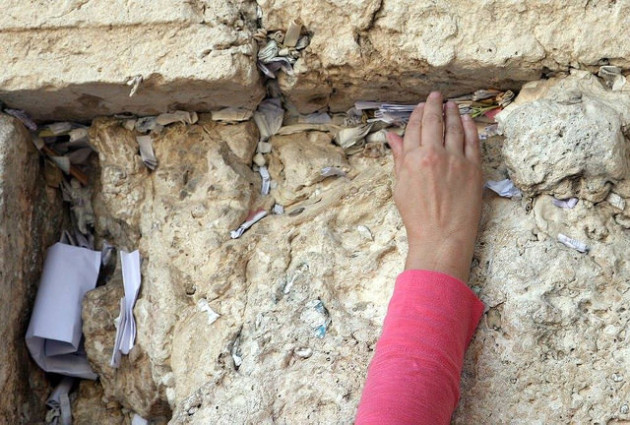
by admin
Changing How Jews Pray at the Wall
 After lawsuits, and years of negotiations, in January the Israeli government approved mixed-gender prayer services at a new area to be constructed just south of the Western Wall in Jerusalem. The agreement was celebrated outside of Israel as a victory for women, but also for its de facto recognition of the liberal streams of Judaism.
After lawsuits, and years of negotiations, in January the Israeli government approved mixed-gender prayer services at a new area to be constructed just south of the Western Wall in Jerusalem. The agreement was celebrated outside of Israel as a victory for women, but also for its de facto recognition of the liberal streams of Judaism.
The existing sections of the Western Wall’s prayer area will still be governed by Orthodox regulations: women cannot read aloud from the Torah, nor wear tallit and tefillin — practices the Women of the Wall, a group praying together regularly at the Wall for more than 25 years, have taken on, despite having been jeered, attacked, and occasionally jailed for this activity.
Rabbi Shmuel Rabinowitz, appointed for life to be in charge of the Wall (the Kotel, in Hebrew), and who considers women’s out-loud praying “blasphemous,” will have no authority over the new area, Robinson’s Arch; it will be under the jurisdiction of Reform and Conservative movements. Nor will he control the “upper plaza,” used for ceremonies like the swearing-in of soldiers. Such official national ceremonies will now be able to include women singing and will have no separation of the sexes.
Women’s issues are often the canary in the coal mine, indicators of other changes. The New York Times reported that Anat Hoffman, the chair of the board of Women of the Wall, declared the government’s approval was acknowledgement “that there is more than one way to be Jewish.” She added, “We were a catalyst for something revolutionary.” Indeed, among Diaspora Jews to the left of the ultra-Orthodox, the Knesset decision was largely hailed as breaking the ultra-Orthodox hold on other practices and laws, with the hope that the Wall agreement would lead to full recognition of non-Orthodox rabbis in Israel and a loosening of the strictures around “personal status” issues such as marriage and divorce.
But it is unclear whether Orthodox women who wish to pray aloud only with women will be permitted this practice in the women’s section once the egalitarian prayer area is in place. Under the agreement, women who prefer single-sex prayer will need to reserve a portable mechitza to separate them from the mixed-gender worship. Activists who name themselves Original Women of the Wall want to “pursue women’s prayer in the women’s section”—in full voice, with Torah, tallit and tefillin, and some say the new agreement actually reinforces the power of the ultra-Orthodox rather than diminishing it. Others claim that women’s prayer has been thrown under the bus for the sake of strengthening the position of the Reform and Conservative movements in Israel. From blogs and social media posts it looks like the “victory” has opened up a chasm between the liberal streams of Judaism and some Modern Orthodox women and allies. Listen:
Rabbi Rachel Adler, on Facebook, February 1, 2016: “This morning my email was flooded with triumphant announcements that we non-Orthodox Jews have been promised a kotel of our very own. Forgive me if I do not rejoice….The charedi [ultra-Orthodox] kotel is to be purified of heretical non-Orthodox Jews and uppity Jewish feminists both. They will all be sequestered at their own little toy kotel, and the charedim will be free to make their kotel into a haredi [ultra-Orthodox] shul without any interference from the courts.”
Anat Hoffman, a negotiator of the agreement and Director of the Reform movement’s Israel Religious Action Center, in an interview with Lilith editor in chief Susan Weidman Schneider hosted by the New Israel Fund in Washington, DC, March 17: “The agreement marks the end of religious hierarchies that discriminate against women. Women will now have an equal chance to practice their religion.” What about the dispute? “It’s radical feminists against more pragmatic feminists.”
Shulamit Magnus, one of the Original Women of the Wall who filed a lawsuit in November 2015 to allow women’s full prayer at the women’s section of the Wall, rather than at Robinson’s Arch, wrote in the Jerusalem Post, January 26: “We reject any deal that would infringe upon, let alone deny, the hard-earned and historic rights of Jewish women at the Kotel. …[I]n accepting Robinson’s in this way, you enhance the power of the very haredi establishment that anathematizes you and rejects your Jewish legitimacy.”